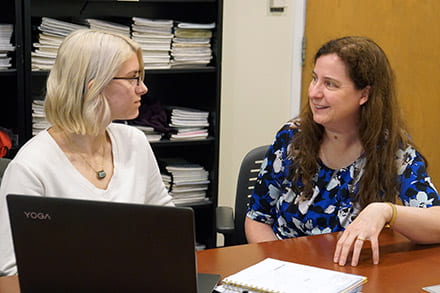Linda Wills’ research addresses embedded computer vision for perceptual computing on the edge. She aims to create inexpensive, low power, and reconfigurable devices that provide video analytics of pedestrian and vehicle flow, and to support portable citizen science applications. With collaborators at NASA Goddard and GTRI, Wills and her students explore how embedded vision systems can be used in CubeSat missions for environmental monitoring and navigating autonomous vehicles in moon landings and planetary exploration.
In teaching, Wills strives to provide space and guidance for students to navigate challenges with serenity and a sense of playfulness. She was inspired by her husband Scott Wills, who was an ECE professor and gifted teacher. “I’ve discovered the joy of engaging students in class projects that open their eyes to their own abilities – their gifts, imperfections, and capacity to be transformed by challenge,” she said. She has continued this work since Scott’s passing in 2011, and draws daily inspiration from their shared legacy: “When a student shares with me a breakthrough or something they learned and created, I see Scott smiling back at me.”
Wills said that many recent advances in perceptual computing, and computer vision in particular, have been driven by statistical machine learning, which is at the core of modern artificially intelligent (AI) systems. “A critical challenge for AI-based perception is ensuring that what has been learned is unbiased and transparent so that it can be accessed and confirmed by human collaborators,” she added. “The ability to achieve consensus on knowledge gleaned and inferences made is critical to building trust and confidence.”
